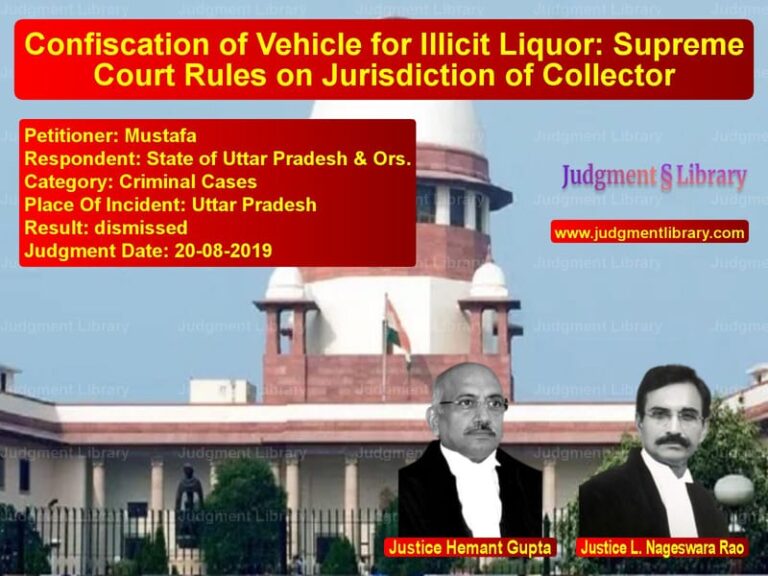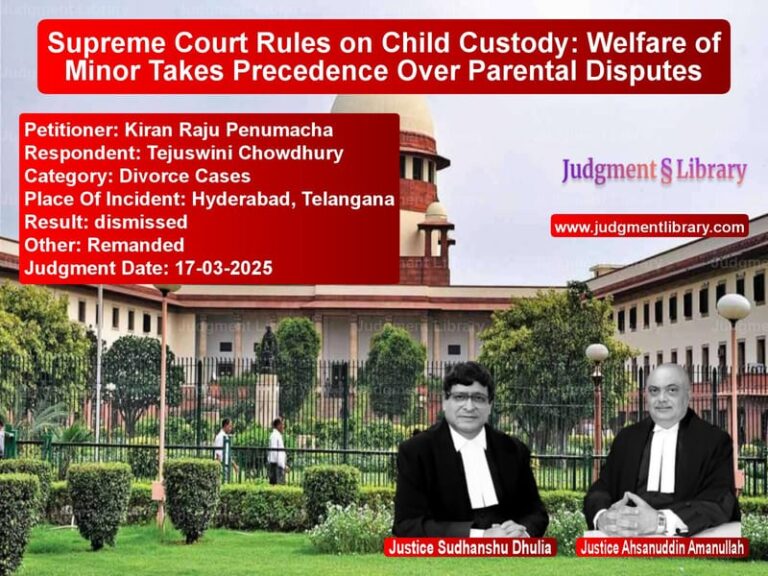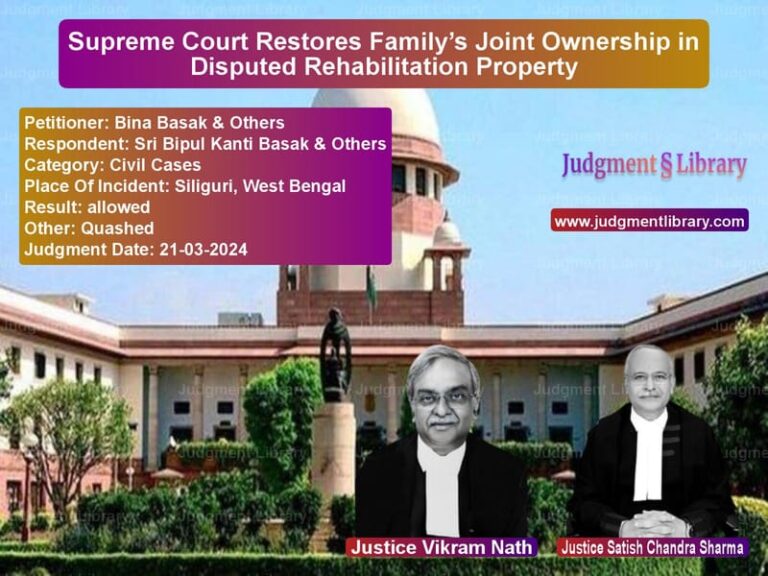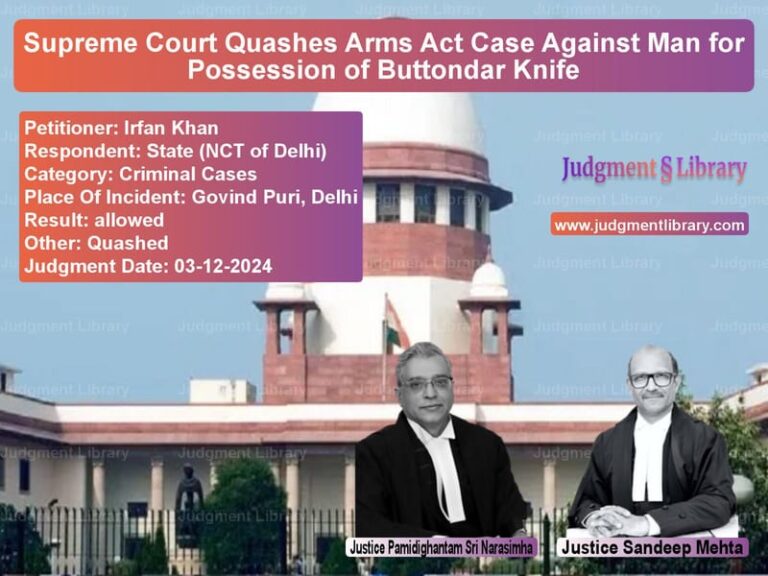Impact of Internet Shutdowns and Section 144 Restrictions on Fundamental Rights
The case of Anuradha Bhasin vs. Union of India and Ghulam Nabi Azad vs. Union of India was a landmark judgment concerning the balance between national security and fundamental rights. The Supreme Court had to determine whether the restrictions imposed in Jammu and Kashmir, including internet shutdowns and Section 144 orders, were justified under the Indian Constitution.
Background of the Case
On August 4, 2019, the Government of India issued orders suspending mobile and broadband internet services in the region of Jammu and Kashmir. The shutdown followed the revocation of Article 370 of the Constitution, which granted special status to Jammu and Kashmir. In addition, the administration imposed prohibitory orders under Section 144 of the CrPC, restricting movement and assembly of people.
The petitioners, including Anuradha Bhasin, the executive editor of the Kashmir Times, challenged these restrictions, arguing that they were unconstitutional and violated fundamental rights such as freedom of speech, the right to carry on business, and the right to access information.
Arguments by the Petitioner
The petitioners put forth the following arguments:
- The internet shutdown was excessive and violated Article 19(1)(a) (freedom of speech and expression) and Article 19(1)(g) (right to practice any profession or to carry on any occupation, trade, or business).
- The indefinite shutdown of the internet in Jammu and Kashmir deprived citizens of their right to access information and communicate.
- Section 144 was arbitrarily imposed without proper justification, leading to a violation of fundamental rights.
- There was no judicial or legislative oversight over the shutdown orders, making them unconstitutional.
Arguments by the Respondent
The Government of India defended the restrictions with the following arguments:
- The restrictions were imposed in the interest of national security, given the sensitive situation in Jammu and Kashmir after the revocation of Article 370.
- The internet had been used by terrorist groups to coordinate activities in the past, and its shutdown was necessary to prevent violence.
- Section 144 orders were required to maintain public order and prevent large gatherings that could lead to civil unrest.
- The restrictions were temporary and were being reviewed periodically to assess their necessity.
Supreme Court Judgment
The Supreme Court examined whether the restrictions were reasonable and proportionate under the Constitution. The key observations made by the Court included:
“The freedom of speech and expression and the right to carry on business through the internet is constitutionally protected. However, restrictions can be imposed, but they must be reasonable, necessary, and proportionate.”
The Court further stated:
- Internet shutdown orders must be published so that affected persons can challenge them in a court of law.
- An indefinite suspension of the internet is not permissible under Indian law.
- Orders under Section 144 cannot be imposed to suppress legitimate expression or dissent.
- The government must review internet shutdown orders every seven days to assess their necessity.
Legal Precedents Considered
The Supreme Court referred to several important cases, including:
- Shreya Singhal vs. Union of India – Upholding free speech and striking down vague restrictions.
- Romesh Thapar vs. State of Madras – Recognizing the importance of the freedom of the press.
- PUCL vs. Union of India – Holding that restrictions on civil liberties must be proportionate.
Final Outcome
Based on its findings, the Supreme Court issued the following directives:
- The government must publish all orders relating to internet shutdowns and Section 144 restrictions.
- Indefinite internet shutdowns are not permissible under Indian law.
- The necessity of any such restrictions must be reviewed periodically.
- Orders under Section 144 cannot be imposed arbitrarily and must meet the test of proportionality.
This ruling reaffirmed the importance of balancing national security with fundamental rights, ensuring that restrictions are imposed only when necessary and with proper oversight.
Petitioner Name: Anuradha Bhasin, Ghulam Nabi Azad.Respondent Name: Union of India.Judgment By: Justice N.V. Ramana.Place Of Incident: Jammu and Kashmir.Judgment Date: 10-01-2020.
Don’t miss out on the full details! Download the complete judgment in PDF format below and gain valuable insights instantly!
Download Judgment: Anuradha Bhasin, Ghu vs Union of India Supreme Court of India Judgment Dated 10-01-2020.pdf
Direct Downlaod Judgment: Direct downlaod this Judgment
See all petitions in Fundamental Rights
See all petitions in Constitution Interpretation
See all petitions in Public Interest Litigation
See all petitions in Judgment by N.V. Ramana
See all petitions in partially allowed
See all petitions in Modified
See all petitions in supreme court of India judgments January 2020
See all petitions in 2020 judgments
See all posts in Constitutional Cases Category
See all allowed petitions in Constitutional Cases Category
See all Dismissed petitions in Constitutional Cases Category
See all partially allowed petitions in Constitutional Cases Category







